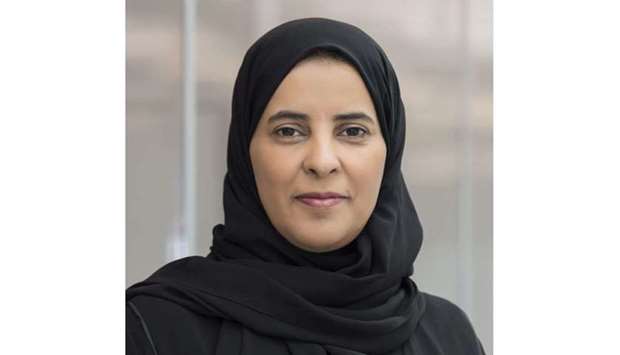Education economics is concerned with maximising the return on investment in education by optimising the use of resources in the educational system to produce the greatest possible benefit for the society
A top official of World Innovation Summit for Education (WISE) has advocated the idea of ‘Education Economics’ to maximise the returns from investment in education.
“It means looking at education from an economic perspective, by studying the economics of human resources, analysing the return from education in terms of cost and educational productivity, and measuring outputs against inputs,” said Dr Asmaa al-Fadala, director of research and content development, WISE, part of Qatar Foundation.
According to al-Fadala, education economics is concerned with maximising the return on investment in education by optimising the use of resources in the educational system to produce the greatest possible benefit for the society.
“The relationship between education and the economy is very close and integral; in fact, I would argue that quality education is a necessary precursor to a healthy economy and the two live in synergy with one another. Universal quality education provides a society with a skilled workforce, which is necessary for a thriving economy and also to supporting all aspects of social infrastructure,” explained al-Fadala.
“At the same time, a strong economy provides a society with the material resources necessary for enabling and developing a healthy and thriving education system. This makes it necessary to consider the economics of education when designing or developing policies for any educational system,” she continued.
Al-Fadala told that investing in education and developing the human wealth and human capital of any society is considered to be one of the best and most rewarding types of investments.
“Providing high-quality education in schools, especially in early childhood, leads to students building human skills and capabilities that grow and evolve with them through the different stages of education. Good education with strong foundations cultivates a generation of professional graduates in different fields who can actively participate in the growth of the economy and in boosting economic production,” she highlighted.
The research head noted that developed countries rely on the development of their national human resources to inform their economic growth in a diversity of disciplines, by providing a cadre of specialists in all fields.
“Among them, of course, is the social field, such as education and family services, and this is what contributes to enhancing social welfare,” she maintained.
The official also stressed on the role of education in preparing specialised professionals and providing state institutions and the private sector with resources that accelerate the pace of development.
She remarked, “This comes from investing in the quality of education at all stages and diversifying and developing curricula. Lifelong learning, which is both a mindset and a process, is reflected in practice by investing time and resources in adult-learning programmes that serve to continuously develop individuals at different points in their lives and careers. This type of ongoing or continuous learning and professional development plays a major role in increasing motivation, interest, and efficiency in the labour market, which, in turn, leads to economic growth.”
Al-Fadala emphasised that entrepreneurship and technological skills are the some of the most important skills for 21st century and they can diversify sources of income to achieve comprehensive development.
“Most educational systems currently incorporate a focus on teaching students entrepreneurship and technological skills, which are skills that characterise the 21st century. They also focus on strengthening the role of global citizenship, scientific research skills, and other skills that help people obtain the jobs of the future as a result of the Fourth Industrial Revolution, or start personal entrepreneurship projects where they apply what they have learned,” she described.
“Entrepreneurship is characterised by the fact that it opens an opportunity for young people to start small and medium enterprises that contribute significantly to providing themselves with income, and providing job opportunities for other youth. This supports the diversification of the economy, and a shift from youth working primarily in the governmental and semi-governmental sectors to working in the private sector,” added al-Fadala.


